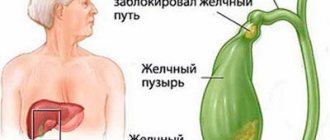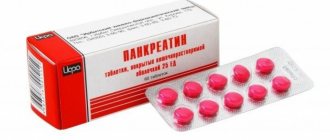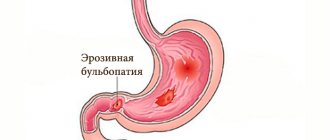Surprisingly, the same drugs can help with different diseases. Let's take gastroesophageal reflux disease (GERD) and the so-called lazy bowel as an example. In the first case, the main manifestation is heartburn, in the second - constipation. Both of them use prokinetics - drugs that regulate the motility of the gastrointestinal tract. Simply put, the intensity and frequency of its contractions.
With GERD, increased activity of the gastrointestinal tract helps get rid of heartburn: food moves faster through the digestive tract and does not provoke the reflux of acid into the esophagus. In addition, the functioning of the lower esophageal sphincter, the valve between the stomach and esophagus, improves. And prokinetics simply make the “lazy intestines” move. But, unfortunately, not all drugs in this group have such a universal effect. Let's figure out which prokinetic agent is optimal in terms of effectiveness and side effects.
Why are prokinetics needed?
Prokinetics normalize contractile activity in various parts of the gastrointestinal tract. Thanks to this, they help get rid of the following symptoms:
- Heartburn;
- Nausea, vomiting;
- Abdominal pain;
- Flatulence, bloating;
- Discomfort in the epigastric region (“in the pit of the stomach”).
Medicines from the prokinetic class are included in the treatment of GERD, gastric and duodenal ulcers, functional dyspepsia, achalasia of the esophagus, diabetic gastroparesis, postoperative intestinal paresis and other diseases of the digestive system.
Who should not take it
There are contraindications for prokinetic drugs:
- Hypersensitivity to the active substance.
- Stomach or intestinal bleeding.
- Perforation of the stomach or intestines.
- Intestinal obstruction.
- Acute liver failure, kidney dysfunction.
It is not recommended if the work requires increased attention and concentration, as well as for those who drive a car. Prokinetics should be prescribed to older people with caution.
Basic drugs
There are not so many prokineticists in Russia. In pharmacies, this class of drugs is represented by drugs with three active ingredients: metoclopramide, domperidone, itopride. Other drugs are banned or are in development. However, this is not a cause for concern. Prohibited drugs are either unsafe or not effective enough.
Of those that we have in our arsenal, metoclopramide should be immediately discarded. Today it is considered obsolete due to the large number of side effects. The drug may cause drowsiness, increased or decreased blood pressure, depression, extrapyramidal disorders (motor disorders).
Doctors treat domperidone better because it has side effects than metoclopramide (does not cause extrapyramidal disorders, for example). But the medicine still has disadvantages:
- May change the electrical activity of the heart and lead to arrhythmia;
- Does not act in the lower gastrointestinal tract (large intestine);
- Can cause hyperprolactinemia (increased levels of prolactin in the blood), galactorrhea (spontaneous leakage of milk from the mammary glands unrelated to feeding the child. Possible in both women and men), gynecomastia (breast enlargement in men);
- “Conflicts” with ketoconazole, antidepressants, macrolides;
- Can only be taken in short courses.
The third active ingredient, itopride, belongs to a new generation of prokinetics. It is considered the safest medicine for the treatment of GERD, gastric and duodenal ulcers, functional dyspepsia, achalasia of the esophagus, diabetic gastroparesis, postoperative intestinal paresis, biliary dyskinesia and other gastrointestinal disorders.
When treating motor activity disorders of the upper gastrointestinal tract (esophagus, stomach), the drug of choice is itopride (itomed).
What are the benefits of itopride:
- It normalizes motility throughout the gastrointestinal tract;
- Does not affect the secretory activity of the stomach. This is especially valuable during the coronavirus epidemic: hydrochloric acid in the stomach is one of the natural defense mechanisms of the human body. By reducing its production now, you increase the risk of infection;
- Has a moderate antiemetic effect;
- Does not disrupt cardiac conduction, does not cause extrapyramidal disorders;
- Minimal interaction with other medications;
- Absorption is independent of food intake;
- Can be taken for a long time. The standard is a continuous three-month course. If necessary, can be extended up to 1 year in half daily doses.
For what diseases is it prescribed?
As mentioned above, prokinetics are used in monotherapy or together with antibiotics. Doctors know that there are diseases for which the administration of prokinetics increases the effectiveness of treatment several times. This group includes:
- Diseases of the digestive system with impaired motor activity.
- Gastroesophageal reflux disease.
- Peptic ulcer of the stomach (duodenum).
- Idiopathic gastroparesis.
- Vomiting.
- Constipation.
- Irritable bowel syndrome.
- Diabetic gastroparesis.
- Flatulence.
- Nausea caused by drug and radiotherapy, infection, functional disorders, poor diet.
- Dyspepsia.
- Biliary dyskinesia.
Pharmaceutical care when using Motilium
- It is advisable to take Motilium® before meals, since when taken after meals, the absorption of domperidone slows down.
- If discomfort does not go away within 2 weeks of constant use of Motilium, you should consult a doctor.
- If, during treatment with Motilium, nausea and vomiting continue for more than 48 hours, a doctor’s consultation is necessary.
- In patients with risk factors (hypokalemia, severe hypomagnesemia, organic heart disease, prolongation of the QT interval on the electrocardiogram, impaired liver and/or renal function), Motilium should be used with caution.
- Due to the risk of complications from the cardiovascular system (ventricular arrhythmias, sudden cardiac arrest in patients over 60 years of age when taking domperidone in doses above 30 mg/day), Motilium® should be used in the minimum effective dose (children, adults). At the same time, the risk/benefit ratio of domperidone remains at a favorable level.
- Do not use Motilium® tablets in patients with lactose intolerance, galactosemia and glucose-galactose malabsorption, since they contain lactose.
- During pregnancy, use Motilium® only if the expected positive effect for the mother exceeds the potential risk for the fetus.
- Breastfeeding should be discontinued during treatment with Motilium, as domperidone passes into breast milk.
- Motilium® can be used in children over 12 years of age and weighing 35 kg or more, using the minimum effective dose.
- When taking Motilium, you should be careful when driving a vehicle and operating machinery, as domperidone can cause side effects from the central nervous system.
- When Motilium is used in combination with anticholinergic drugs, the pharmacological effects of Motilium may be neutralized.
- With simultaneous use of Motilium and ketoconazole, the QT interval on the electrocardiogram, reflecting the process of contraction of the ventricles of the heart, may lengthen, so alternative antifungal therapy should be used.
- The combined use of domperidone with ketoconazole, fluconazole and other drugs that suppress the CYP 3A4 isoenzyme may provoke an increase in the concentration of domperidone in the blood plasma.
The listed pharmacological effects of domperidone, the features of its action, low toxicity, minimal side effects among prokinetics with a similar mechanism of action allow us to recommend Motilium® for fast and effective drug therapy for symptoms of gastrointestinal dysfunction (see Algorithm for choosing an OTC drug in a pharmacy for dyspeptic syndrome). Motilium® stops the main mechanism for the development of gastrointestinal dysfunction - a violation of the neurohumoral regulation of gastrointestinal functions - and eliminates the increased activity of aggressive factors that injure the gastrointestinal mucosa. Assisting patients in choosing an OTC drug (Motilium®) for self-treatment of certain manifestations of FD is fully consistent with the principles of rational differentiated pathogenetic therapy of gastrointestinal diseases.
Features of application
Prokinetics are prescribed with special caution to people with renal and liver failure, as well as other disorders of the functioning of these organs. Such patients should take the medicine under the strict supervision of a doctor.
With prolonged use of prokinetics, it is necessary to undergo periodic examinations, as they can negatively affect the functioning of many internal organs. Infants and older people should take these medications especially carefully.
Before carrying out treatment, you should definitely consult a doctor, and you should not select analogues on your own, as this can have a bad effect on your health. If you feel worse, you should immediately stop taking the medicine and consult a doctor.
Mechanism of action
The mechanism of action is determined by the type of drug.
Dopamine receptor blockers:
- stimulate the activity of the lower esophageal sphincter of the stomach;
- accelerate the evacuation of gastric contents into the duodenum;
- stimulate the motor function of the smooth muscles of the small and large intestines;
- promote the rapid movement and removal of feces from the body.
This is due to the binding of dopamine receptors in the intestine.
New generation selective agents have virtually no side effects and are successfully used to treat chronic gastrointestinal diseases, including GERD. Medicines based on Cisapride and Itopride improve the motor and evacuation functions of the stomach, increase the dynamism of the gallbladder and small intestine.
5-HT4 agonists and 5-HT3 antagonists have similar drug effects:
- reduce the time food remains in the stomach;
- increase the speed of food transit;
- normalize the tone of the large intestine.
Health from nature
The reluctance to encounter such effects of drugs forces us to seek help from nature. It turns out that natural prokinetics also exist. Our ancestors have long brewed or infused various parts of plants and improved the functioning of the intestines and stomachs without harm to health. They have a prokinetic effect:
- fennel and other plants of the umbrella family (cumin, coriander, dill);
- black elderberry;
- oregano;
- alder buckthorn;
- pharmaceutical camomile;
- big plantain.
You don’t have to go to the pharmacy or into nature to find natural prokinetics. Freshly prepared juices from pumpkin and cabbage, carrots and beets, grapes and melon can stimulate the functioning of the intestines and stomach just as well as any drug. This does not mean that you should replace medications prescribed by your doctor with juices, decoctions and tinctures, especially in the complex treatment of chronic diseases. Consultation with a specialist is necessary in any case.
How everything should work
Nature has created a complex mechanism for digesting food in the human body. Thanks to it, what we eat does not remain a lump in the throat, but gradually moves through the gastrointestinal tract, where it is processed by gastric juice and enzymes. This happens due to the fact that the walls of the stomach and intestines are covered with smooth muscles, which begin to “work” the moment food or drink passes from the pharynx into the esophagus.
Responsibility for the reflex work of muscles lies with dopamine (D2) and serotonin (5-HT3, 5-HT4) receptors. The first force them to relax so that the walls of the organ can stretch and accept a certain amount of food. The second ones cause contraction so that what is eaten moves further. In turn, they are given a signal by neurotransmitters - biologically active substances that are synthesized in human blood.
For one reason or another (most often due to chronic or infectious diseases of the gastrointestinal tract), a failure occurs in this well-functioning system. In this case, prokinetic drugs are prescribed as symptomatic or auxiliary therapy.
Side effects
Prokinetic drugs are often recommended to be taken once or in short courses, as they have a pronounced effect on many internal organs and the nervous system. They can provoke side effects such as:
- drowsiness;
- severe fatigue;
- headaches, dizziness;
- intestinal spasms;
- the appearance of constipation;
- diarrhea;
- bronchospasms;
- allergy;
- arrhythmia.
The most side effects are observed when taking the drug "Metoclopramide", which is why it is prescribed in extreme cases as an adjuvant.
What types of prokinetics are there?
According to their mechanism of action, all existing prokinetics can be divided into several different groups, namely:
- dopamine receptor blockers;
- receptor agonists;
- receptor antagonists.
The list of prokinetic drugs includes macrolide antibiotics and hormonal peptides.
Some types of such drugs have been used for several decades, while others are just beginning to appear on the pharmaceutical market. There are also medicines whose pharmacological properties are just beginning to be studied. The most famous and well-studied drugs are selective prokinetics, dopamine receptor blockers, which enhance intestinal and gastric motility. Doctors recommend taking these medications three times a day for 10-14 days, always before bed. Such medications are presented in the form of tablets and injections.
Contraindications
Despite all the positive qualities of prokinetics, there are still certain contraindications to the use of this group of drugs, which include the following:
- hypersensitivity to components;
- intestinal obstruction and gastric bleeding;
- severe dysfunction of internal organs;
- pregnancy and breastfeeding.
It is not recommended to take these drugs for those whose professional activities involve high concentration of attention, as well as when driving a car. Prokinetics have been used for the treatment of diseases of the stomach and intestines for quite a long time, however, due to the likelihood of various kinds of complications, they should only be prescribed by the attending physician, based on the results of the examination.










